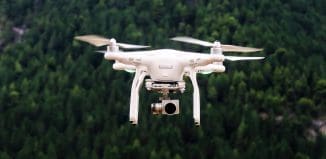Soon WiFi Could Power Your Devices
This post is also available in:  עברית (Hebrew)
עברית (Hebrew)
Wireless technology has revolutionised our lives. The now ubiquitous WiFi connects us instantaneously to the wider internet, but soon it will be able to do much more.
Engineers and researchers at the University of Washington have developed a new technology that uses the ever-present WiFi router to power devices.
Power Over WiFi (PoWiFi) has been included in Popular Science magazine’s “Best of What’s New” awards as one of the most game-changing and innovative technologies of the year.
Earlier in the year, the researchers announced that they have developed a novel method of harnessing spare energy from WiFi signals to power several devices with low energy requirements, including a low resolution camera, a temperature sensor, and a charger for an activity tracking bracelet.
“For the first time we’ve shown that you can use WiFi devices to power the sensors in cameras and other devices,” said Vamsi Talla, an electrical engineering doctoral student at the University. “We also made a system that can co-exist as a Wi-Fi router and a power source—it doesn’t degrade the quality of your Wi-Fi signals while it’s powering devices.”
The technology could have far reaching effects for the burgeoning Internet of Things – some of the smaller internet-connected devices could be powered by the background “noise” of regular WiFi signal, eliminating the need for costly batteries and greatly reducing their cost.
One of the issues faced by the researchers was the fact that WiFi signals are not constant. Routers are active only when they have information to transmit. The problem was solved by setting WiFi routers to transmit “power packets” on unused frequencies.
The technology is still in its infancy, but “in the future, PoWiFi could leverage technology power scaling to further improve the efficiency of the system to enable operation at larger distances and power numerous more sensors and applications,” said Shyam Gollakota, assistant professor of computer science and engineering at the University of Washington.





























